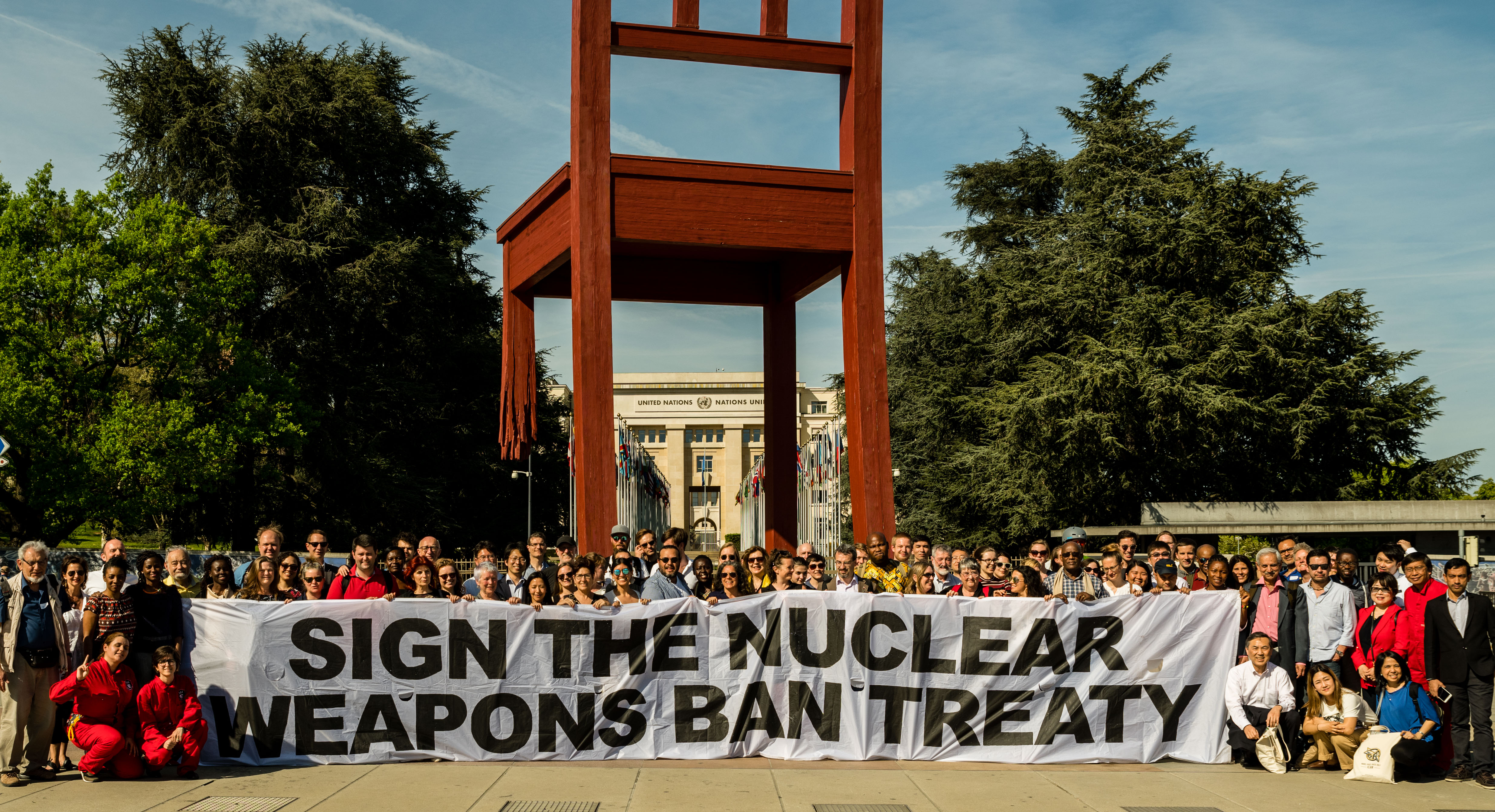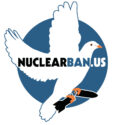
ICAN campaigners taken in front of the Broken Chair, a memorial to landmine victims, outside of the United Nations European Headquarters in Geneva, Switzerland
Last week, I had the privilege of attending, on behalf of NuclearBan.US, the International Campaign to Abolish Nuclear Weapons (ICAN) campaigners’ meeting in Geneva, Switzerland. The meeting brought together over 130 ICAN campaigners from around the world to discuss campaign progress and strategy for making the United Nations Nuclear Ban Treaty successful.
Since 122 nations adopted the treaty at the United Nations on July 7, 2017, 58 countries have already signed and 7 countries have ratified the treaty. Once 50 countries have ratified the treaty it will enter into legal force, becoming binding under international law. Many countries across the Americas, Africa, Europe, and Asia are working through their governmental process of officially ratifying the treaty. This exciting progress means we are on track to have the treaty enter into force sometime over the next two years!
I met energized and creative campaigners from Kenya, Costa Rica, Nepal, The United Kingdom, Germany, Austria, and The United States among many other countries who are bridging generational, national, religious, gender, and ethnic differences to build a thriving coalition against nuclear weapons. They talked about their efforts to lobby governments, politicians, faith organizations, and people and institutions at the grassroots level to take a stand against nuclear weapons.
The biggest challenge moving forward is getting the nine nuclear weapons countries and their NATO allies to support the treaty and eliminate their weapons. ICAN’s approach is to focus on consistent and clear messaging highlighting the humanitarian and existential risk that nuclear weapons pose to humanity. It’s a risk that we all share regardless of our national, political, or ethnic affiliations.
Here in the United States, it is a challenge to get people to think more internationally, but that is specifically what is needed for the Nuclear Ban Treaty to be successful. Grassroots mobilizing will be vital for turning the tides from nuclear posturing towards nuclear disarmament and nuclear abolition. By working in our communities to educate others on nuclear risk, and by personally and collectively divesting from, and boycotting, the 26 companies making nuclear weapons we can help chip away at their legitimacy.
Cities, institutions, businesses, schools, faith organizations, and individuals across the US and abroad have already started committing themselves to divesting and boycotting from nuclear weapons, and many more are in the process of doing so. The treaty compliance campaign that is the centerpiece of NuclearBan.US is one way individuals and communities large and small can take on the nuclear threat and contribute to the success of the Nuclear Ban Treaty. It’s also offers a scalable strategy that other nuclear weapon and NATO countries can adopt to mobilize their citizenry. Furthermore, by mobilizing public support for the treaty we also signal to the international community that there is grassroots support for the Nuclear Ban in the US, further encouraging other countries to ratify the treaty.
After attending the ICAN campaigners’ meeting I am more convinced than ever that this movement will be successful. As we saw with the historic agreement that made vital progress towards ending the Korean War and the denuclearization of the Korean peninsula, diplomacy is good foreign policy. We need not wait for morality and rationality to creep into our political systems. As ICAN’s success to date reminds us, change starts within ourselves and our communities. It is possible to alter the course of history.

Lydia Wood (holding the ICAN Nobel Peace Prize medallion!)






